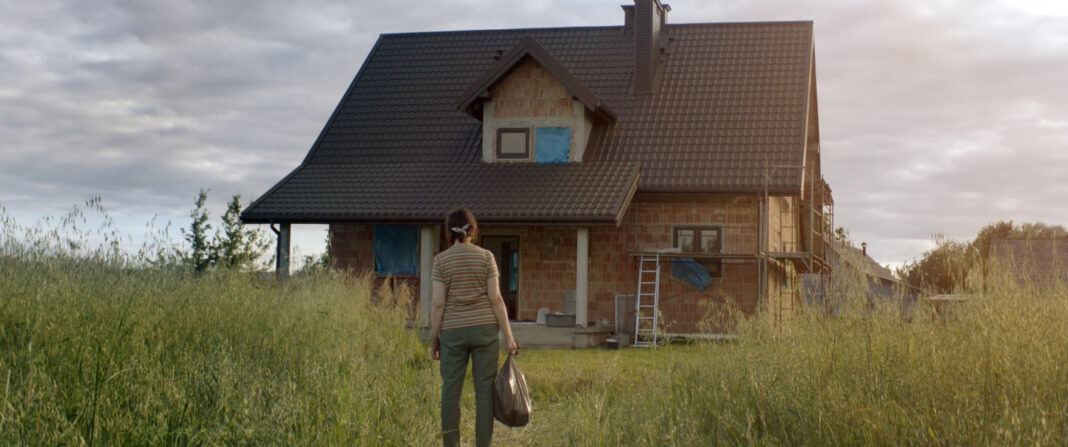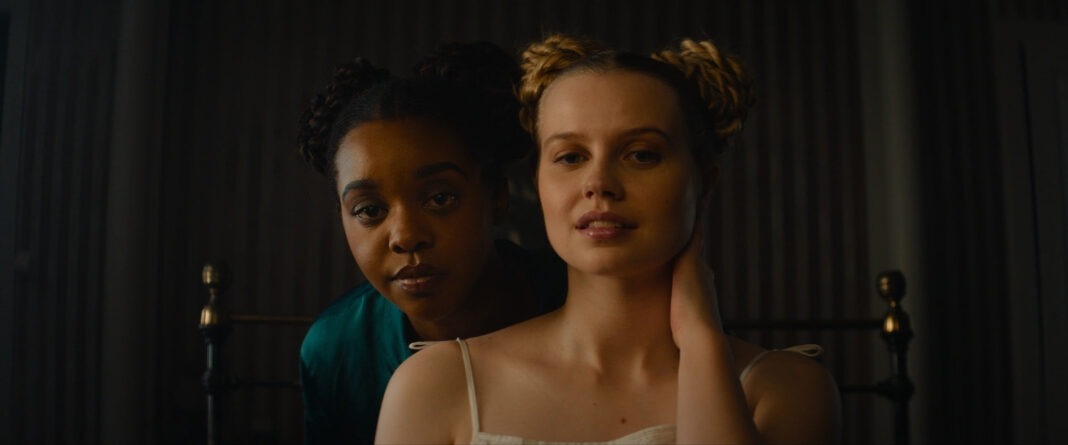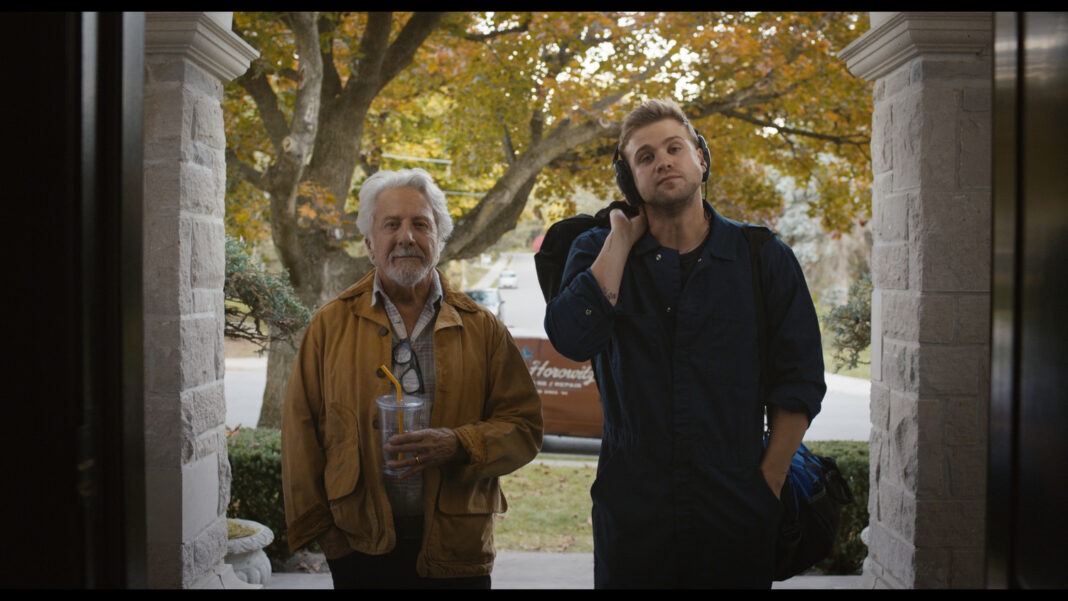People may be different based on their orbits and environment, adapting to their surroundings to fill the role necessitated or dictated to them by society or others. Those who lead wild lives during their free time may be entirely professional during the workday, while some don’t have the luxury of a distinction between the two as work occupies most of their time. Mama presents an intriguing exploration of how one woman is constantly in service of the people around her, only occasionally taking time to actually indulge in something that might either make her happy or even just make her feel like herself for a mere moment.
Mila (Evgenia Dodina) works in Israel as a housekeeper, but an injury to her arm while she’s working prompts her employers to encourage a trip back home to Poland while she recovers, with full assurances that her job will be waiting for her when she gets back. As she arrives to a site of busy construction with her dream house close to being realized, she finds that the family she has left behind has found a way to function without her, with her daughter Kasia (Kasia Katarzyna Lubik) in a new relationship and pulling away from school and her husband Antoni (Arkadiusz Jakubik) finding fulfillment elsewhere.
There isn’t an excess of dialogue in this film, which presents its main character without much introduction. She’s first seen entertaining Martin (Martin Ogbu), a gardener with whom she’s having an affair, lost in the allure of this romance with a younger man, only to suddenly realize the time and that she needs to switch back into a mode of subservience. She’s exceedingly polite and cooperative around her employers, and when she returns home, she barely says anything, taking in what’s happening around her in a measured way and silently processing the numerous surprising developments that she’s last to learn in a space that no longer feels as familiar and safe as it once did.
Audiences around the world will find plenty to relate to about this story despite the fact that it splits its time between Israel and Poland. Mila is a parent who has given up everything for her family, living far away from them in order to make enough money to support them. The beauty of the house she’s working to build represents a dream of something better, a reason for this time away that goes beyond meeting the bare minimum and instead achieving a stability that would feel remarkably different. The trouble is, as this film demonstrates, she’s missed too much to make any four walls feel like a home that’s truly hers.
Dodina is a celebrated actress and seven-time Ophir Israeli Academy Award nominee, and she masterfully slips into this role, wearing so much of what Mila has experienced on her face. She has built a decent and comfortable life for herself in Israel, and it’s almost startling to learn after first seeing her with Martin that she does have a family back home. Her arrival to a much more rural area stands in stark contrast to the modernity of the home in which she works, and that’s before she discovers the latest happenings in her family. Dodina reacts subtly and potently to each new revelation, a remarkable exercise in restraint and moderation.
This film’s title is ultimately quite fitting since much of the story in its second half focuses on the relationship between Mila and Kasia and how she’s still able to be there for her even if she doesn’t know her nearly as well as she did before she left. This film is defined by understatement and quiet moments, proving that major plot twists and explosive developments aren’t necessary to make a compelling and lingering film that will feel both relatable and hopefully comfortably distant enough to audiences at the same time.
Movie Rating: 8/10



